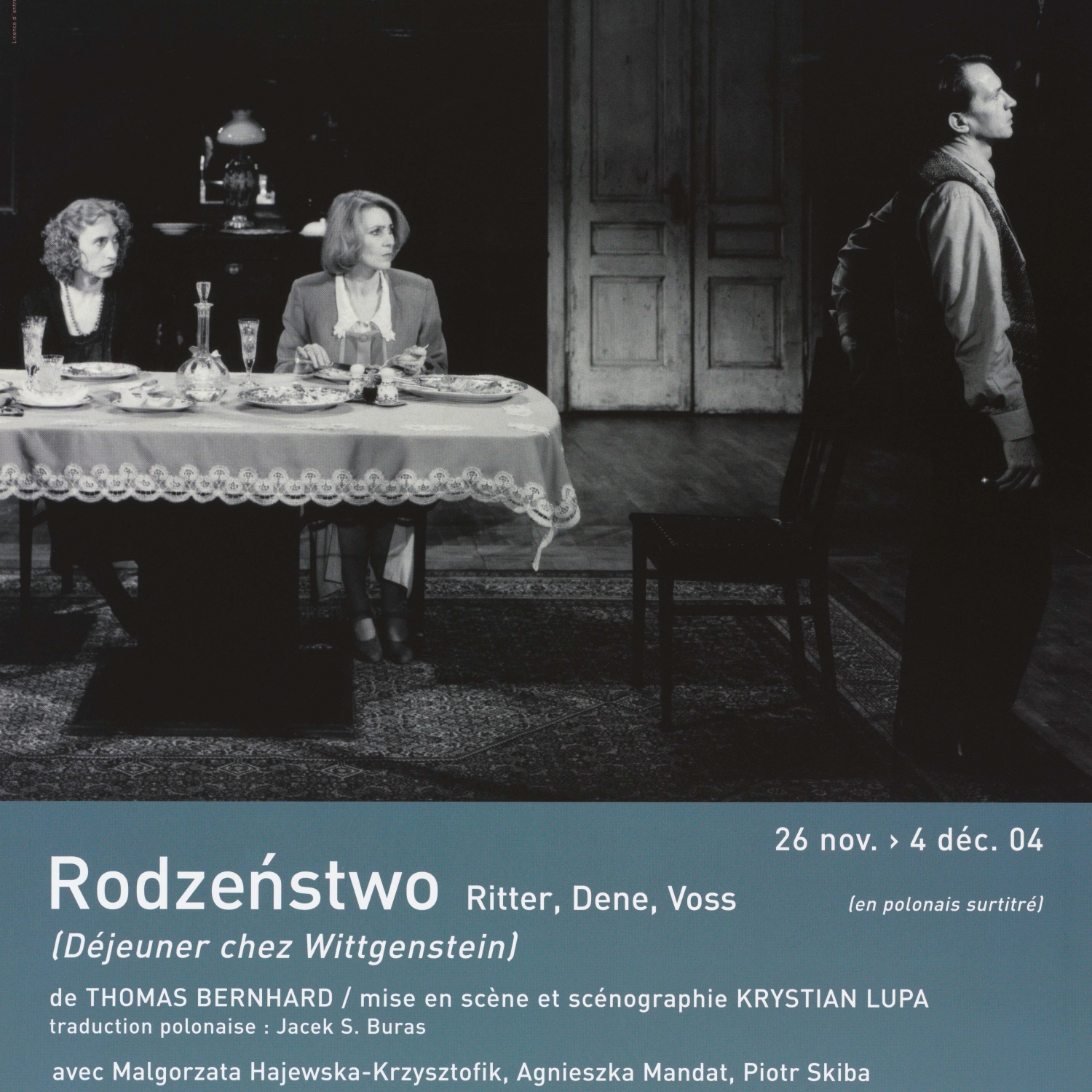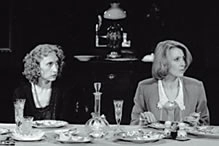Rodzenstwo - Ritter, Dene, Voss (Lunch With Wittgenstein)
November 26 2004 to December 04 2004
Krystian Lupa has been delighting Odeon audiences for six years already!
Since 1998 with his Somnambules (after Hermann Broch), the great master of Polish art theater has regularly returned, at Georges Lavaudant's invitation, to continue his scenic meditation on contemporary spirituality for an always increasing audience. Two years after Auslöschung/Extinction, Lupa returns with another text by Thomas Bernhard, one of his preferred authors. But for the first time, we won't be able to admire Lupa's skills at adaptation. With Ritter, Dene and Voss (Lunch With Wittgenstein), he directs a stage play that is conceived and constructed from the outset by its author. Ritter, Dene and Voss are the names of three great actors Bernhard admired. He wrote this play for them and then entitled it after them in homage. Ritter and Dene first performed the roles of two sisters returning to their brother's home (played by Voss). They are actresses. Actresses who don't perform, or not much. They chose to do so because their father, a businessman with foresight, bequeathed a 51% share of a theater to them. Maybe they are playing out (for the thousandth time) their little intimate scenes for us, with the same barbs, the same arguments and automatic responses. But if they are only acting, it's not obvious. As for the brother, he tirelessly expounds on Logic. A philosopher, but one who claims that a psychiatric ward is his only home. Two artists and a thinker, all three prisoners of a family whose portraits cover the walls in a home where nothing is allowed to change.
In this play, written two years after a story entitled Wittgenstein's Nephew, Bernhard liberally borrows from material that was inspired by the family saga of one of the 20th Century's greatest philosophers, Ludwig Wittgenstein. The play's three "acts" can be read as three moments stolen from a certain neurotic family, but also as a satire of a certain Austria that forced its most sensitive offspring into exile, or worse yet, poisoned their creative energy right from the start.
Created in Poland in 1996, Rodzenstwo, Ritter, Dene and Voss made it into one of Lupa's most successful shows. Three of the best actors from the Stary Teatr use their talent in a huit-clos performance that the Odeon-Berthier's Petite Salle will only make more intimate. The close proximity with the audience is, in fact, an essential element of the show's climate as Lupa has conceived it. The actors perform as if no one from the outside world could disturb their pathetic and terrifying intimacy.



